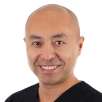During a unique breakfast briefing on Friday morning, Unilever’s Zendium showcased a remarkable set of data demonstrating how daily use of Zendium toothpaste improves gingival health by balancing the oral microbiome. The results are perfectly aligned with the evolving view of the pathology of periodontal disease that puts microbial balance, rather than microbial elimination, at its heart. Dental Tribune International sat down with speaker Prof. Nicola West, head of restorative dentistry and the Clinical Trials Unit at the Bristol Dental School in the UK. An expert in clinical research on the efficacy of oral hygiene products, she was the ideal conversation partner for an update on the topic.
What is the oral microbiome, and what is its significance for oral health?
The oral microbiome is the structure of the bacteria on the teeth and oral mucosa, with its proteins and natural enzymes. Ideally, the bacteria in our oral microbiome are naturally in a state of balance, that way maintaining oral health and protecting us from developing disease. The vast majority of periodontal diseases are initiated by an accumulation of biofilm on the hard surfaces of the mouth: the teeth or implants. If the biofilm is not disrupted on a regular basis by self-directed oral hygiene, it becomes dysbiotic, and we get the emergence of pathogenic strains, leading to gingivitis and, in susceptible individuals, periodontitis.
What are some of the dangers to a healthy microbiome?
A poor sleeping pattern or unhealthy lifestyle choices such as smoking. Pregnancy is a risk factor too, owing to the hormonal changes happening in the body, and the fact that there are hormone receptors in the mouth. Lastly, a healthy diet is very important. We should be eating and drinking more natural products instead of the processed forms we eat a lot of the time, like honey in the Mediterranean diet, to give just one example. It is important to get the physical effect of our nutrition in the mouth instead of just swallowing it and getting the systemic reaction afterwards. Honey is actually a marvellous natural ingredient containing a lot of natural protective agents, so much so that I actually have started keeping my own bees!
You also mentioned stress as a possible risk factor. Could you explain why that is?
We know that there are stress pathways linked to the mouth. When it comes to periodontal disease, people either are or are not naturally susceptible to it. If one is susceptible, stress is one of the contributing genetic and epigenetic risk factors. All in all, 50 per cent of our population is susceptible to periodontal disease—which is a huge number. When we look after patients, we can definitely see a difference in stability in the periodontal condition between people who are stressed and those who are not. In people who do not cope well with stress, one can actually see changes in saliva production, sleeping pattern, pocket formation and so on.
Lastly, how has EuroPerio been for you so far?
I think it is a fantastic event. It is buzzing, isn’t it? It is busier than the last one we had in London, and I just think this is the place to be. For me, it is an opportunity to network and exchange ideas with all the experts on periodontics from all around the world. It is very friendly and well organised, and the programme is just amazing.
Tags:
BIRMINGHAM, UK: In a recent study, researchers from the University of Birmingham examined the records of patients having a history of periodontal disease, ...
SEATTLE, US: Ageing greatly affects overall health and is the greatest risk factor for cardiovascular disease, Alzheimer’s disease and periodontal ...
LOUISVILLE, KY, U.S.: A new study has shown that Porphyromonas gingivalis, the bacterium commonly associated with chronic periodontal disease, has an ...
CHENGDU, China: Research has shown a connection between severe periodontal disease and the progression of chronic obstructive pulmonary disease (COPD). ...
NEW YORK, U.S.: Older adults with more harmful than healthy bacteria in their periodontal tissue are more likely to have evidence for amyloid beta— a key ...
According to current data, approximately ten million people in Germany have severe periodontitis. This condition leads to tooth extractions and loss of ...
AMSTERDAM, Netherlands: Though there has been a great deal of research focused on the detrimental effect of periodontitis and peri-implantitis on an ...
Several chronic illnesses can be traced back to alcohol consumption, sedentary lifestyle, unhealthy nutrition or smoking. Smoking, in particular, is a ...
BRUSSELS, Belgium: The European Federation of Periodontology (EFP) recently commissioned the Economist Intelligence Unit (EIU), a provider of forecasting ...
MIS Implants Technologies is a global specialist in the development and production of advanced dental implantology products and solutions. At the beginning ...
Live webinar
Tue. 16 April 2024
3:00 pm EST (New York)
Live webinar
Wed. 17 April 2024
10:00 am EST (New York)
Live webinar
Wed. 17 April 2024
12:00 pm EST (New York)
Dr. Alexander Nussbaum Head of Scientific & Medical Affairs, Philip Morris GmbH, Dr. Björn Eggert
Live webinar
Wed. 17 April 2024
6:00 pm EST (New York)
Dra. Gabriella Peñarrieta Juanito
Live webinar
Thu. 18 April 2024
11:00 am EST (New York)
Live webinar
Mon. 22 April 2024
10:00 am EST (New York)
Prof. Dr. Erdem Kilic, Prof. Dr. Kerem Kilic
Live webinar
Tue. 23 April 2024
1:00 pm EST (New York)



 Austria / Österreich
Austria / Österreich
 Bosnia and Herzegovina / Босна и Херцеговина
Bosnia and Herzegovina / Босна и Херцеговина
 Bulgaria / България
Bulgaria / България
 Croatia / Hrvatska
Croatia / Hrvatska
 Czech Republic & Slovakia / Česká republika & Slovensko
Czech Republic & Slovakia / Česká republika & Slovensko
 Finland / Suomi
Finland / Suomi
 France / France
France / France
 Germany / Deutschland
Germany / Deutschland
 Greece / ΕΛΛΑΔΑ
Greece / ΕΛΛΑΔΑ
 Italy / Italia
Italy / Italia
 Netherlands / Nederland
Netherlands / Nederland
 Nordic / Nordic
Nordic / Nordic
 Poland / Polska
Poland / Polska
 Portugal / Portugal
Portugal / Portugal
 Romania & Moldova / România & Moldova
Romania & Moldova / România & Moldova
 Slovenia / Slovenija
Slovenia / Slovenija
 Serbia & Montenegro / Србија и Црна Гора
Serbia & Montenegro / Србија и Црна Гора
 Spain / España
Spain / España
 Switzerland / Schweiz
Switzerland / Schweiz
 Turkey / Türkiye
Turkey / Türkiye
 UK & Ireland / UK & Ireland
UK & Ireland / UK & Ireland
 Brazil / Brasil
Brazil / Brasil
 Canada / Canada
Canada / Canada
 Latin America / Latinoamérica
Latin America / Latinoamérica
 USA / USA
USA / USA
 China / 中国
China / 中国
 India / भारत गणराज्य
India / भारत गणराज्य
 Japan / 日本
Japan / 日本
 Pakistan / Pākistān
Pakistan / Pākistān
 Vietnam / Việt Nam
Vietnam / Việt Nam
 ASEAN / ASEAN
ASEAN / ASEAN
 Israel / מְדִינַת יִשְׂרָאֵל
Israel / מְדִינַת יִשְׂרָאֵל
 Algeria, Morocco & Tunisia / الجزائر والمغرب وتونس
Algeria, Morocco & Tunisia / الجزائر والمغرب وتونس
 Middle East / Middle East
Middle East / Middle East
:sharpen(level=0):output(format=jpeg)/up/dt/2024/04/Immediate-full-arch-zirconia-implant-therapy-utilising-the-power-of-robotic-assistance-and-digital-scanning_Fig-1-preophoto_title.jpg)
:sharpen(level=0):output(format=jpeg)/up/dt/2024/04/How-far-has-3D-printing-brought-clear-aligners.jpg)
:sharpen(level=0):output(format=jpeg)/up/dt/2024/04/Dentists-fear-DIY-tooth-extractions-as-Wales-hikes-NHS-fees.jpg)
:sharpen(level=0):output(format=jpeg)/up/dt/2024/04/What-to-do-to-avoid-air-bubbles.jpg)
:sharpen(level=0):output(format=jpeg)/up/dt/2024/04/A-fully-guided-digital-workflow-for-predictable-implant-planning-and-placement-Fig.-1a.jpg)








:sharpen(level=0):output(format=png)/up/dt/2022/01/Sprintray_Logo_2506x700.png)
:sharpen(level=0):output(format=png)/up/dt/2011/11/ITI-LOGO.png)
:sharpen(level=0):output(format=png)/up/dt/2024/01/UnionTech-Logo-Hub.png)
:sharpen(level=0):output(format=png)/up/dt/2022/10/DMP-logo-2020_end.png)
:sharpen(level=0):output(format=png)/up/dt/2014/02/Planmeca.png)
:sharpen(level=0):output(format=jpeg)/up/dt/2018/06/west-and-edwards.jpg)

:sharpen(level=0):output(format=jpeg)/up/dt/2024/04/Immediate-full-arch-zirconia-implant-therapy-utilising-the-power-of-robotic-assistance-and-digital-scanning_Fig-1-preophoto_title.jpg)
:sharpen(level=0):output(format=gif)/wp-content/themes/dt/images/no-user.gif)
:sharpen(level=0):output(format=jpeg)/up/dt/2022/01/Periodontal-disease-increases-risk-of-chronic-diseases-including-mental-ill-health.jpg)
:sharpen(level=0):output(format=jpeg)/up/dt/2024/03/First-ever-study-to-examine-use-of-anti-ageing-drug-in-periodontal-disease.jpg)
:sharpen(level=0):output(format=jpeg)/up/dt/2019/02/Periodontal-disease-bacterium-appears-to-drive-Alzheimers-disease.jpg)
:sharpen(level=0):output(format=jpeg)/up/dt/2024/01/Periodontal-disease-worsens-chronic-obstructive-pulmonary-disease.jpg)
:sharpen(level=0):output(format=jpeg)/up/dt/2021/04/Study-finds-new-evidence-that-periodontal-disease-is-linked-to-Alzheimer%E2%80%99s-disease.jpg)
:sharpen(level=0):output(format=jpeg)/up/dt/2024/01/Fig.-1.jpg)
:sharpen(level=0):output(format=jpeg)/up/dt/2018/06/janDerksEP9.jpeg)
:sharpen(level=0):output(format=jpeg)/up/dt/2017/01/061afd149755d836e8c857f138813889.jpg)
:sharpen(level=0):output(format=jpeg)/up/dt/2021/07/Prevention-of-gum-disease-could-save-billions_hanohiki_780-x-439.jpg)
:sharpen(level=0):output(format=jpeg)/up/dt/2017/01/4f3ae2050b322b38408a1e225be78592.jpg)







:sharpen(level=0):output(format=jpeg)/up/dt/2024/04/Immediate-full-arch-zirconia-implant-therapy-utilising-the-power-of-robotic-assistance-and-digital-scanning_Fig-1-preophoto_title.jpg)
:sharpen(level=0):output(format=jpeg)/up/dt/2024/04/How-far-has-3D-printing-brought-clear-aligners.jpg)
:sharpen(level=0):output(format=jpeg)/up/dt/2024/04/Dentists-fear-DIY-tooth-extractions-as-Wales-hikes-NHS-fees.jpg)
:sharpen(level=0):output(format=jpeg)/wp-content/themes/dt/images/3dprinting-banner.jpg)
:sharpen(level=0):output(format=jpeg)/wp-content/themes/dt/images/aligners-banner.jpg)
:sharpen(level=0):output(format=jpeg)/wp-content/themes/dt/images/covid-banner.jpg)
:sharpen(level=0):output(format=jpeg)/wp-content/themes/dt/images/roots-banner-2024.jpg)
To post a reply please login or register